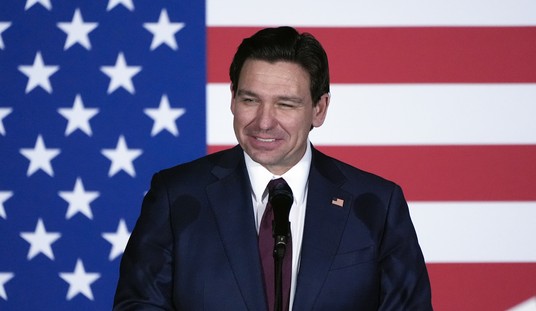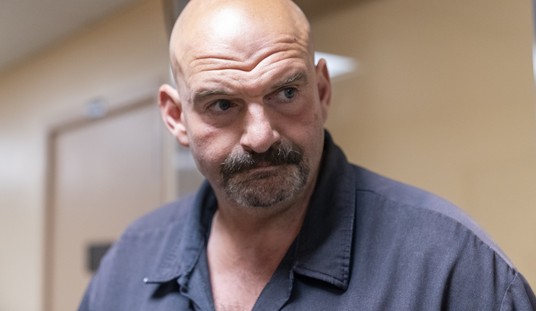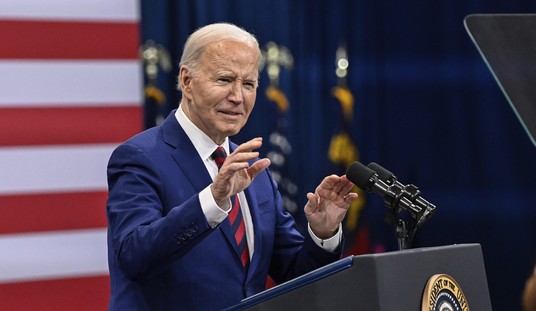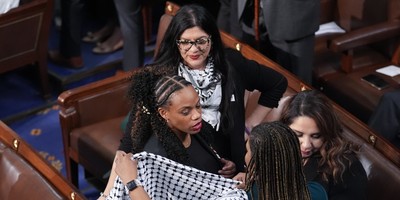The Obamacare losing streak continues apace, starting with another Associated Press story on why the law's 'access shock' consequences are getting worse:
Advertisement
Primary care doctors caring for low-income patients will face steep fee cuts next year as a temporary program in President Barack Obama's health care law expires. That could squeeze access just when millions of new patients are gaining Medicaid coverage. A study Wednesday from the nonpartisan Urban Institute estimated fee reductions will average about 40 percent nationwide. But they could reach 50 percent or more for primary care doctors in California, New York, New Jersey, and Illinois — big states that have all expanded Medicaid under the health law. Meager pay for doctors has been a persistent problem for Medicaid, the safety-net health insurance program. Low-income people unable to find a family doctor instead flock to hospital emergency rooms, where treatment is more expensive and not usually focused on prevention.
That's right, say it with me: Medicaid expansion does not reduce uncompensated care. So how will these reimbursement cuts impact doctors and patients? Surprise:
Doctors probably won't dump their current Medicaid patients, but they'll take a hard look at accepting new ones, said Dr. Robert Wergin, a practitioner in rural Milford, Neb., and president of the American Academy of Family Physicians. "You are going to be paid less, so you are going to have to look at your practice and find ways to eke it out," Wergin said.
The Obama administration surveys this landscape and doggedly clings to its goal of
Recommended
Advertisement
Medicaid covers more than 60 million people, making the federal-state program even larger than Medicare. The health care law has added about 9 million people to the Medicaid rolls, as 27 states have taken advantage of an option that extends coverage to many low-income adults. Health and Human Services Secretary Sylvia M. Burwell says expanding Medicaid in the remaining 23 states is one of her top priorities. But the fee cut could make that an even harder sell, since it may reinforce a perception that the federal government creates expensive new benefits only to pass the bill to states.
Perception is reality, literally in this case. Meanwhile, a former director of the nonpartisan Congressional Budget Office is predicting a chaotic and frustrating tax season for many Obamacare consumers:
A former director of the Congressional Budget Office is predicting a rough tax season as a result of new provisions going into effect from the 2010 health care overhaul. Douglas Holtz-Eakin, who was head of the CBO from 2003 to 2005 and is currently president of the American Action Forum, said Dec. 5 that the Affordable Care Act's subsidy payments made for 2014 are unlikely to have been accurate, which means some people will have to reimburse the government for over-payments. Holtz-Eakin spoke at a forum sponsored by the American Enterprise Institute for Public Policy Research on what the next Republican Congress will do on health care. The 2015 tax filing season “is going to be a disaster,” he warned, adding that the result may be more traction in Congress for major changes to the law.
Advertisement
People are bracing to pay even more out of pocket next year, and then they'll get slammed with an additional 2014 tax bill because the government couldn't get a functioning web portal up and running on schedule. (That so-called "back end" is still under construction). Click through to read Jim Capretta's latest piece, which further debunks the 'Obamacare is responsible for the cost slowdown' myth, repeated by Kathleen Sebelius this week. While hardened ideologues continue to insist that this law is working, the American people continue to disagree. Vehemently. Katie wrote up the latest Fox News polling numbers yesterday, which demonstrate (again) that approximately twice as many Americans have been directly hurt by the law, compared to those who've benefited from it:

As I wrote at Hot Air, many within the ranks of the "unaffected" will be in for a rude awakening over the coming years. I'll leave you with this, via the Free Beacon. Happy Friday, America:

























Join the conversation as a VIP Member